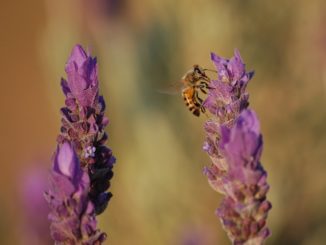ARC web correspondent for Romania, interviews the General Secretary оf the Bulgarian Association of Agricultural Producers (BAAP), Ivailo Todorov

ARC: Can you briefly outline the work of BAAP with regard to the reform of the CAP?
Ivailo Todorov: The reform of CAP and the new challenges that Bulgarian agriculturаl producers will face after 2013 is one of the main areas in which BAAP works.
One of the main activities of the association is to provide members access to the most recent information about the European programs placed at agricultural producers’ disposal for business development and investments.
Since the beginning of 2011, the association has organised a wide public debate including round tables in 8 different towns to cover all the districts in the country. This co-initiatve of BAAP and the Bulgarian agricultural representative in the EU – Mrs Maria Nedeltcheva took place with the participation of representatives of the Ministy of Agriculture and Food, as well as with experts of Copa-Cogeca.
ARC: In its declaration in June 2011, BAAP called for a better balance between Pillar I and Pillar II of the CAP. Do you think that this has been achieved in Commissions’s proposals?
IT: BAAP considers the preservation of the two pillars within the draft proposals as a positive move.
The widely commented upon flexibility must be stressed as a big success for the next programming period. This is particularly the case where funds can be transferred between the two pillars of the CAP, as well as in the envisaged new schemes for direct payments bound to the production and specific character of the regions. In such a way it will be possible to aid the less developed sub-sectors of agriculture in Bulgaria and support the farms in unfavourable areas.
ARC: Many organisations across the EU now fear that Pillar II has become agricultural rather than staying rural. What does the BAAP think about the modifications?
IT: As we represent agricultural producers, we consider it a positive step that Pillar II is more oriented towards agriculture. Bearing in mind that compared to other Member States, Bulgarian agriculture is not as developed, the modifications provide a good opportunity for us to catch up with the rest of our colleagues and develop rural areas.
The draft proposal envisages a scheme for support of small farmers and funds for young agricultural producers – this will also have a positive impact on the structure of Bulgarian agriculture. However the proposals also continue to allocate 25% of the rural development budget to agro-ecological payments. This is embarrassing from the point of view that the experience of Bulgaria shows unsatisfactory absorption of these funds until now.
ARC: Is the Bulgarian Ministry of Agriculture supporting BAAP’s position on CAP reform?
IT: Through the public debate process outlined in question one which included farmers, representatives of NGOs and legal, local and executive administration, the common position of Bulgaria could be presented. Along with BAAP position papers, the Ministry of Agriculture can be convinced that their proposals are in conformity with the realities of Bulgarian agriculture.
ARC: The BAAP is linked with several farmers’ organisations, in others countries. Have you considered a joint coalition to strengthen your position in the CAP reform process?
IT: As an association we aim to unify efforts, and exchange experiences and information with colleagues from branch organisations in Bulgaria, as well as with our colleagues from other European and Balkan’ organisations. A Regional Committee for Cooperation of the national organisations of agricultural producers was established in 2010 on the initiative of BAAP, the National Federation of the Agricultural Producers in Romania (NFPAR) and the Federation of Farmers in Republic Macedonia (RERM). Our colleagues from Moldova joined subsequently. The Regional Committee is one of the forms for co-ordination between the organisations. We also maintain a very good partnership with our colleagues from the Austrian Agricultural Cluster. One of the topics of our meetings undoubtedly is the forthcoming reform of the Common Agricultural Policy.




